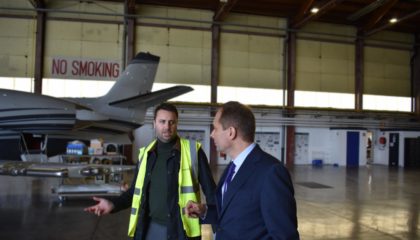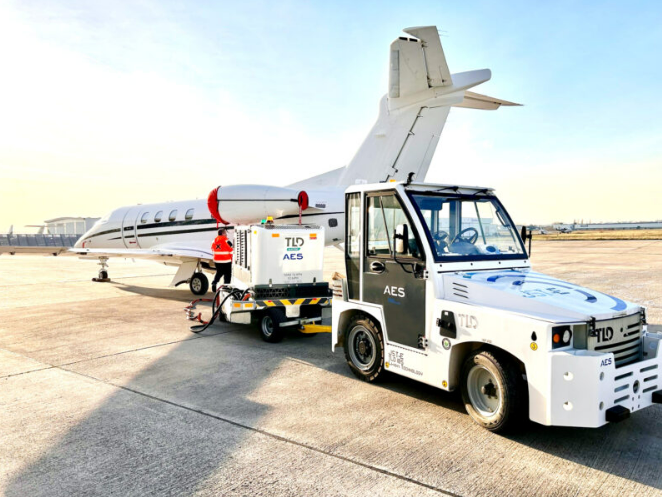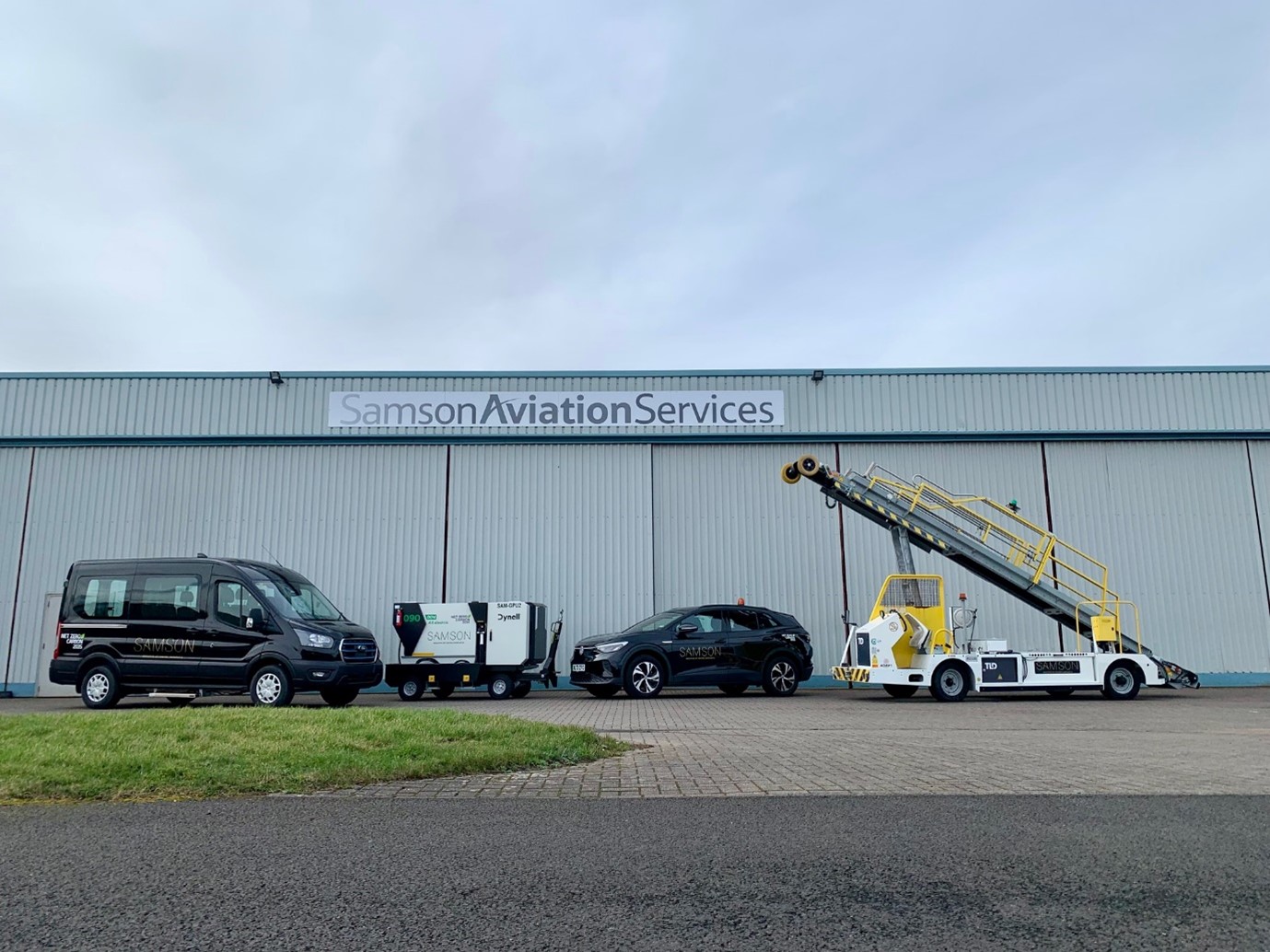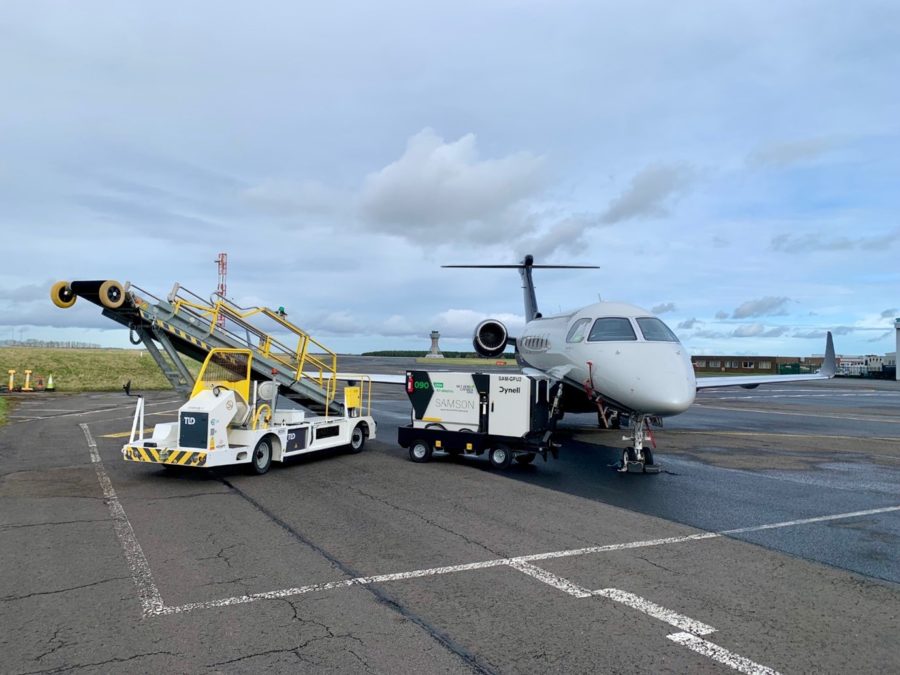
Luxaviation introduces electric equipment at FBOs
In an effort to reduce ground emissions to zero at FBOs Luxaviation Group succeded to implement new electric ground handling equipment at two key FBO's of its global network...
As Business aviation associations like EBAA and GAMA continue their collaborative efforts to establish favourable regulatory frameworks for the European Business aviation sector, aiming to fulfill the objectives outlined in the Business Aviation Commitment on Climate Change (BACCC), it is encouraging to witness tangible progress towards sustainability within the industry. A notable example of this industry endeavour is Luxaviation Group, which has recently unveiled its initiative to deploy electric ground handling equipment at the FBOs in Le Bourget, Paris and Newcastle, UK. In light of these achievements, EBAA has interviewed Nicola-Jane Sellers, Luxaviation Group’s Sustainability Manager and Caroline Demsar, Luxavation France’s Deputy CEO, to learn more about Luxaviation’s sustainability journey.
The milestone comes as a move in Luxaviation Group’s target to achieve a 100% of GHE electrification in their FBOs by 2030. At their Paris FBO, the list of GHE that are fully electric includes ground power units, mototok, air stairs, luggage truck, toilet service, pushback tug and a portable water truck.
Furthermore, following the partnership between ExecuJet, part of Luxaviation Group, and Samson Executive Jet Centre, a new FBO at Newcastle International Airport was recently added to ExecuJet’s global FBO network.Shortly after forming the partnership, Samson Executive Jet Centre demonstrated its commitment to sustainability by implementing several electric equipment, including an electric GPU, an electric customer vehicle, an electric passenger minibus, and an electric belt loader. This successful collaboration is a testament to Luxaviation’s discerning approach in selecting partners that align with its core values of safety, customer service excellence, as well as environmental responsibility.
By replacing the vehicle and ground handling fleet with fully electric models, it will allow them to reduce the emissions from the vehicles operating on site to nil.


Nicola-Jane Sellers, Luxaviation Group’s Sustainability Manager, and Caroline Demsar, Luxaviation France’s Deputy CEO, provided EBAA with some insights into Luxaviation Group’s concrete efforts towards sustainability.
When did Luxaviation Group first recognise the significance of reducing its emissions? Can you tell us more about the process that led to the decision to install electric ground-handling equipment at your FBOs?
Luxaviation recognised the significance of reducing its emissions as part of its holistic integration of Corporate Social Responsibility. The group began measuring, monitoring, and reporting Scope 1 emissions (direct emissions) primarily derived from the combustion of conventional jet fuel back in 2019. Since then, Luxaviation has embarked on a journey of discovery to understand its environmental impact better and, by way of mitigating these impacts, continuously explores practical actions for implementation. Transparency is fundamental for a true commitment to sustainability. In 2021, Luxaviation became one of the first private aircraft operators to deliver on its pledge by publishing an annual sustainability report. In anticipation of the Group’s third publication, Luxaviation remains steadfast in sharing its impact and progress towards emissions reduction through expanding reporting boundaries in dedication to more responsible business. Solidifying measures like these enable us to meet the growing expectations of our customers, who wish to benefit from business aviation while considering environmental needs.
Can you describe the overall process of implementing electric ground-handling equipment at Le Bourget, including the cooperation with airport authorities? What have been the main challenges that you encountered during the process (e.g., financial, regulatory, staff training etc.)?
The electrical transition process was straightforward because it was the result of the negotiation with a new supplier which shares with us the vision of a more sustainable business aviation industry. We took advantage of the pairing with a new supplier specialising in electrical GSE to change our equipment in its entirety. AES was strong in its willingness and very effective in the transition.
What benefits do you expect by transitioning to fully electric ground-handling equipment at Le Bourget?
The benefits we expect vary, given that transitioning to fully electric GHE promotes a combination of environmental, social, and economic considerations. For example, electric GHE produces zero emissions during operations compared with traditional fossil-fuelled equipment therefore, reductions in GHE emissions are immediate. While the environmental impact is clear, there are broader social benefits, including promoting healthy and happier working environments for our employees by eliminating their exposure to pollution from conventional fossil-fuelled GHE. Additionally, electric GHE is generally silent, meaning a more pleasurable boarding experience for our passengers and a greater consideration for the communities in which we operate. Finally, choosing to invest in a solution that prioritises the long-term health and wellbeing of both people and the planet is not just the right thing to do, it’s good for the future of the industry.
How does this initiative align with the overall sustainability goals of ExecuJet and Luxaviation Group? Can you elaborate on the group’s broader goal of achieving 100% electrification of ground-handling equipment at its fixed-base operations by 2030?
ExecuJet, part of the Luxaviation Group, aims to electrify all GHE by 2030. This initiative reflects Luxaviation’s mission of ‘striving to protect and preserve Planet Earth’, with significant progress towards this target surpassing 50%. Notably, Paris-Le Bourget is the first ExecuJet FBO in Europe to achieve this ambitious target seven years early.
What advice would you give to other FBOs willing to follow in your footsteps?
We would advise all FBOs at Paris Le Bourget Airport, the first business aviation airport in Europe, to take proactive measures without hesitation to become an example of environmental protection.




